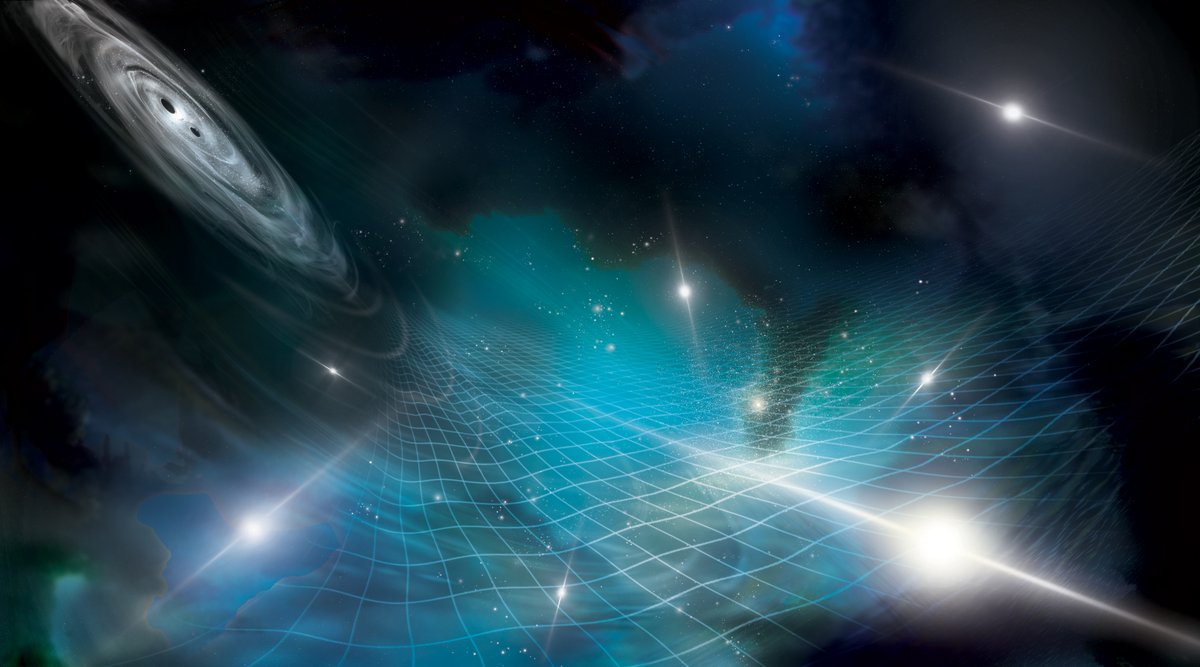This is the announcement that was being hyped up in that aliens or time-travel thread a few days ago.
The announcement is that the scientists who were studying gravitational waves found gravitational waves. This was perhaps a bit overhyped.
To be fair, it's a very big experiment and it's nice that they got it all to work. They also found more gravitational waves than expected.
The actual scientists involved were tweeting about it being a monumental event.
It’s monumental for astrophysics I think. Just not to the layperson or even physicists outside astronomy. Though honestly, sometimes monumental events are only clearly visible as such in hindsight. If Hubble himself announced the discovery of the expanding universe today, it would be met with a similar “So what?” response because it really doesn’t mean a lot in everyday life, but it means everything for cosmology and astrophysics.
To be clear, I agree it was a bit overhyped.
idk im a physics dweeb and we kinda already knew about this, they just proved it with a different methodology. i guess the real hype thing is it gives them a slightly better avenue to detect supermassive black holes that are hard to see
It’s not aliens or time travel or ftl, but it’s still cool. Afaik, it’s as follows:
Binary supermassive black holes orbit each other so quickly that they create gravitational ripples in spacetime, changing the distance/time it takes for objects to move through it. It’s like the next step of how general relativity says that objects with mass bend spacetime to create gravity.
Here, objects with mass bend spacetime to create gravity, and when these objects move, they change the bending, creating ripples that affect other objects that are also moving and creating more ripples etc etc etc so there is a constant rippling going on in spacetime.
And the way we discovered this is by measuring photons from pulsars spread throughout the galaxy, essentially using the entire galaxy as a telescope. And it took 15 years of measurements to notice this general rippling. And given the amount of rippling going on, there are a lot more binary supermassive black holes than we thought.
I’m still waiting on the aliens.
Tl;dr They developed the gravity equivalent of the first radio antenna. Since the first detection in 2015, we have been limited to a narrow range of frequencies (like visible light, but for gravitational waves). Now we can see more.
I understand it a little differently — still reading about the news myself, so not an expert, but I studied astrophysics for my undergrad, and was in school when LIGO made the first detections of gravitational waves, so I had the opportunity to listen to excited profs explain the discovery in my classes.
The cool thing about LIGO is that it was a direct detection of gravitational waves, through measurement of the distance between two detectors spaced kilometers apart. But because the gravitational force is so weak, the resulting waves are also extremely weak, so they looked for mergers of black holes and neutron stars. These events were a relatively low-hanging fruit to detect because they are "loud" and happen over a few minutes. Before this detection, gravitational waves were universally accepted to exist because they result necessarily from General Relativity. But knowing something exists and actually measuring it are distinct things, and for their trouble, they deservedly won the 2017 Nobel Prize.
So, we have long known gravitational waves exist, and their detection already happened and Nobels were passed around. Why care about this news?
LIGO-style detectors have a limited range of detectable frequencies. Brief "chirps" from mergers, given the accomplishment of setting up detectors, are relatively easy to tease out signal from the noise. But this can't be used to measure super-low frequency waves that take months or decades to cycle. And for pairs of supermassive black holes which orbit once every decade, the gravitational waves are precisely of that kind, and therefore cannot be detected by something like LIGO.
One of the major unsolved problems in astrophysics is precisely the question of if, and how, binary supermassive black holes can ever merge. This is known as the Final Parsec Problem. Long story short, when a galaxy merges, these orbiting pairs will gradually lose energy and shrink their orbit due to dynamical friction. But this friction stops occurring when the orbit is a few light-years across. So the question becomes: how do supermassive black holes eventually merge if their orbits stop shrinking at a certain point? Do they ever merge? We don't know. It's kind of embarrassing.
This new detection method is important because it enables us to detect low-frequency gravitational waves. It can be a tool for detecting mergers of supermassive black holes. If we don't detect any, then that answers the question of how mergers can happen (they don't) but opens the new question of why many galaxies have just one supermassive black hole whose mass seems likely to result from past mergers.
The above is just one problem that could be answered by the new gravitational wave detection method. The broader takeaway is that multi-messenger astronomy has gained an important tool to answer many questions. If the history of astronomy is the study of electromagnetic waves coming from space, then we are effectively carving out a whole new astronomy based on a different force, gravity, which will give us information not easily deduced from electromagnetic waves — e.g., it's hard to learn about dark matter if the whole point is it doesn't interact strongly with the electromagnetic force, but it does interact with the gravitational force.
Determining the speed of gravity was also an important piece of these experiments with LIGO iirc. It seems to be the same as the speed of light, but that raises some interesting questions too.
https://en.wikipedia.org/wiki/Speed_of_gravity
Out of curiosity, what questions are brought up by light and gravity having the same speed? I thought the general consensus was that the speed of light is just the speed of the spread of information in our laws of physics, so it would make sense that all phenomenon that don't rely on mass (which is a weird thing to say about gravity, but you know what I mean) would travel at that speed?
First, I'm just a sciency dork. I don't have any real expertise myself.
There's a specific distinction between gravity waves and mass aka plain ole gravity.
Gravity waves are supposed to be space-time distortions that propagate from what I'll call strong dynamic mass events. This distortion propagates at C, but mass information itself seems to be instantaneous as far as I know. So that's pretty interesting. If the medium of space-time has an info speed limit, then how does mass work on everything everywhere all at once? And if it does work like that, then why do these special events create these distortions. Could they provide a way to examine this assumption of instantaneous-ness? Does a distortion in space-time aka gravity wave potentially represent a violation of this instantaneous-ness?
Examining these events via special relativity seems to work pretty well, but we still have no quantum gravity understanding. And the only things that actually travel at C (or near C) are massless particles. Entanglement is the only phenomenon that provides a form of instantaneous-ness. So it would seem mass might not be related to particle info (gravitons) because that would mean they would have to move faster than C, right? So is mass just the result of some entanglement originating from the big bang? That'd be pretty freaky.
This part stood out:
The detection of GW170817 in 2017, the finalé of a neutron star inspiral observed through both gravitational waves and gamma rays, at a distance of 130 million light years, currently provides by far the best limit on the difference between the speed of light and that of gravity. Photons were detected 1.7 seconds after peak gravitational wave emission; assuming a delay of zero to 10 seconds, the difference between the speeds of gravitational and electromagnetic waves, vGW − vEM, is constrained to between −3×10−15 and +7×10−16 times the speed of light.
Hey no, confirmation is cool! "We had a theory and we were super fucking right because we're awesome!"
It would probably make scientists happy if people could congratulate them on their own terms
I think these results are very cool, but the level of hype built up around it was still irresponsible.
yes Michio kaku and friends seem to upset the real researchers quite a lot
What does Michio Kaku have to do with anything? Several of the actual scientists involved were tweeting about how earth shattering this will be.
the real researchers in my usage there is interchangeable with "the ogs"
you don't think mr god particle saying quantum mechanics research will lead to teleporters before 2100 contributed to people making this about aliens, etc
There is no person I have consistently despised more than Kaku the entire way through my progression from insufferable STEMlord to barely sufferable leftie. Futurists get the wall.
irresponsible
Tfw scientists announce they've made a major discovery but it's just some nerd shit about gravity and there's still zero sexy green-skinned alien babes fascinated by the strange human custom of blowjobs


everyone dbouted me. they said "gravity don't real." look whos laff hing













